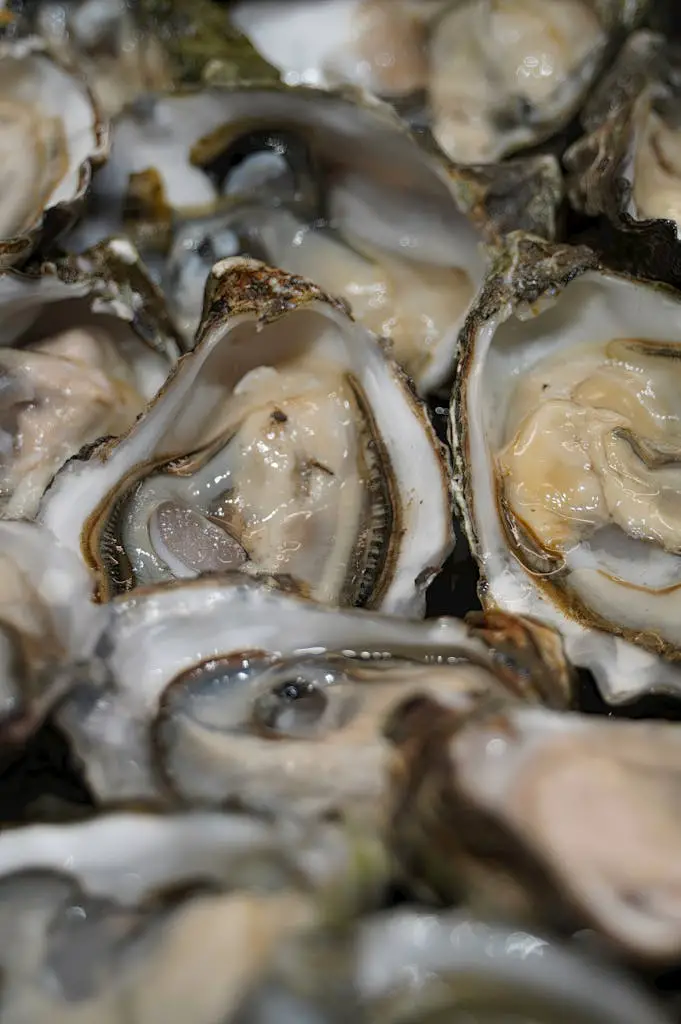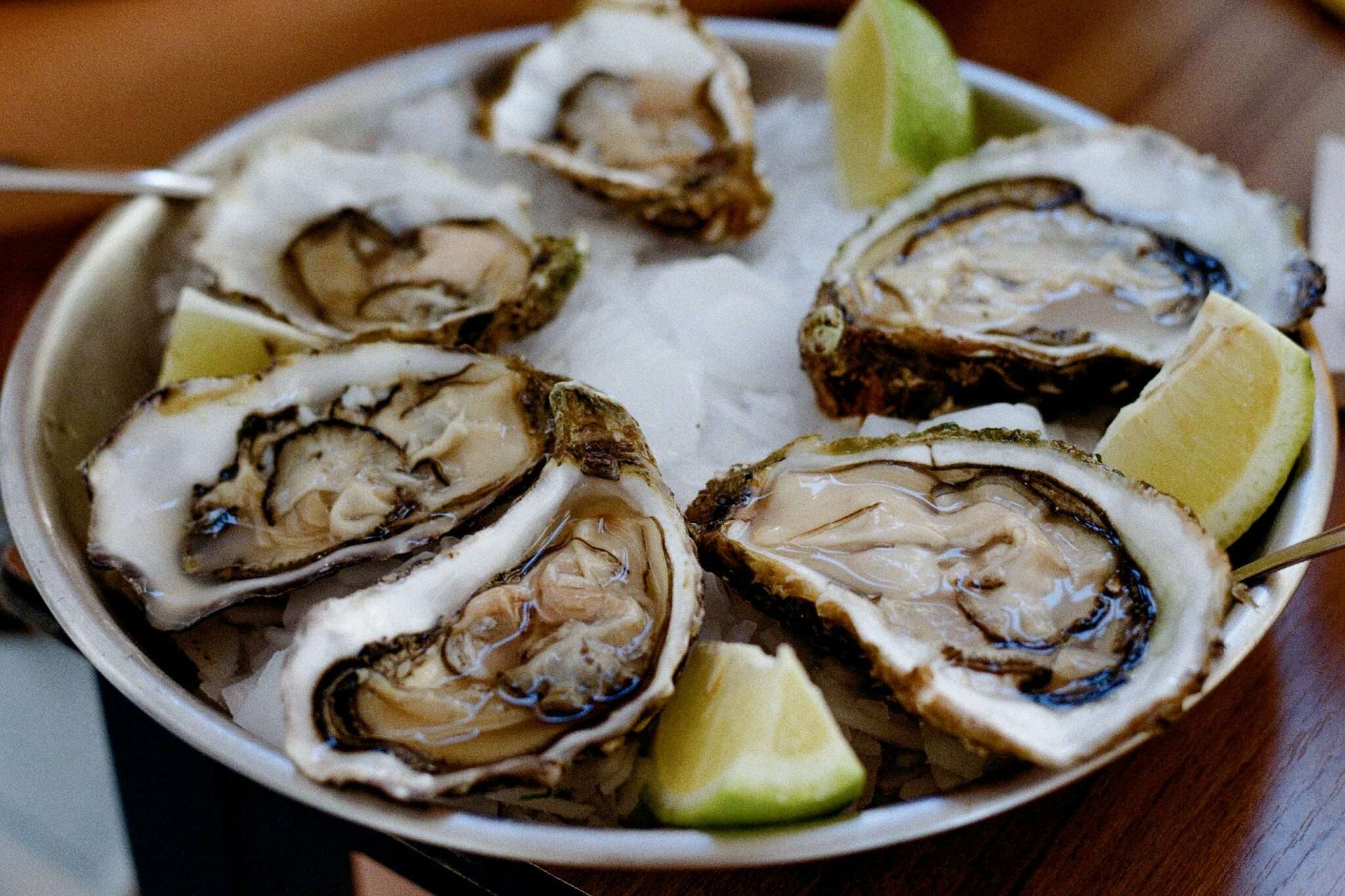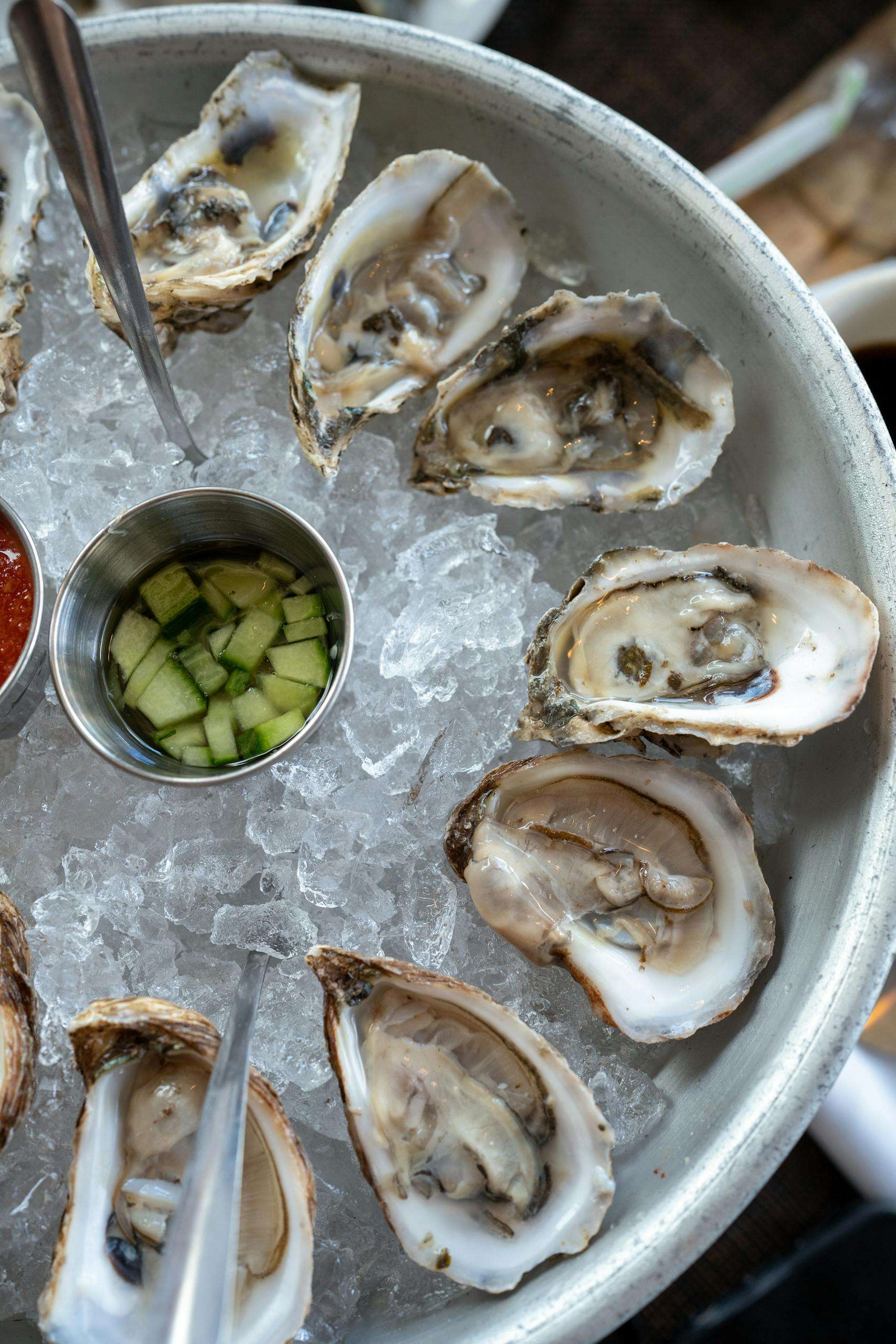Are Oysters Halal?
Are oysters halal? This is a common question for Muslims who want to ensure their food choices align with Islamic dietary laws. Oysters, a popular shellfish enjoyed globally, are often subject to debate in the halal and haram discussion.
In this article, we’ll explore whether oysters are considered halal in Islam by examining scholarly opinions and Quranic verses. We’ll also touch on the health considerations that every Muslim should know before consuming oysters.
Answer: YES, OYESTERS ARE HALAL.
What are Oysters?

Oysters are a type of shellfish found in marine environments. Known for their unique taste and texture, they are often enjoyed raw, cooked, or in various culinary dishes worldwide. Oysters are also packed with nutrients, including vitamins, minerals, and antioxidants, making them a popular choice for health-conscious eaters.
Islamic Perspective on Seafood
In Islam, the consumption of seafood is generally permissible, but there are specific guidelines that must be followed. The Quran and Hadith provide clear instructions regarding what is considered halal (permissible) and haram (forbidden) for Muslims to consume.
General Islamic Rulings on Seafood:
Most scholars agree that all seafood is halal, based on the Quranic verse:
“Lawful to you is the game from the sea and its food as provision for you and the travelers…” (Quran 5:96)
This verse indicates that seafood is permissible, which includes oysters. However, there are slight variations in interpretation among different Islamic schools of thought.
Are Oysters Halal or Haram?
The majority of Islamic scholars, particularly from the Hanafi, Shafi’i, Maliki, and Hanbali schools of thought, consider oysters to be halal. This is based on the general permissibility of seafood mentioned in the Quran.
Scholarly Opinions
- Hanafi School: Generally, the Hanafi school is more restrictive with seafood, typically only allowing fish with scales. However, there is still debate within this school, and some scholars permit the consumption of oysters.
- Shafi’i, Maliki, and Hanbali Schools: These schools broadly classify all sea creatures, including oysters, as halal.
Potential Health Concerns
While oysters are halal, it’s essential to consider health concerns, especially regarding the consumption of raw oysters. Raw oysters can carry harmful bacteria or viruses that could lead to foodborne illnesses. Islam emphasizes consuming food that is not harmful to the body, so it’s recommended to ensure oysters are sourced from clean waters and properly prepared before consumption.

Last Words
Oysters are generally considered halal according to the majority of Islamic scholars, with clear support from Quranic verses and hadiths that permit seafood. However, it’s crucial to consider the source and preparation of oysters to ensure they meet halal standards and are safe to eat.
By understanding these guidelines, Muslims can confidently enjoy oysters while adhering to Islamic dietary laws. If you’re ever in doubt, consulting with a knowledgeable scholar is always the best approach. For more insights on halal and haram foods, explore our other articles on Halalawareness.com.
Frequently Asked Questions
Are all types of oysters halal?
Yes, all types of oysters are generally considered halal according to most Islamic scholars.
Is it safe to eat raw oysters according to Islamic teachings?
While oysters are halal, consuming raw oysters can pose health risks. Islam advises avoiding harmful foods, so it’s better to eat them cooked or ensure they are sourced from safe, clean waters.
Are there any exceptions where oysters might not be halal?
Some scholars from the Hanafi school may have reservations, but the majority view across Islamic schools of thought is that oysters are halal.
Are all types of shellfish halal in Islam?
Most Islamic scholars agree that all types of shellfish, including oysters, are halal. However, some opinions within the Hanafi school may be more restrictive.







